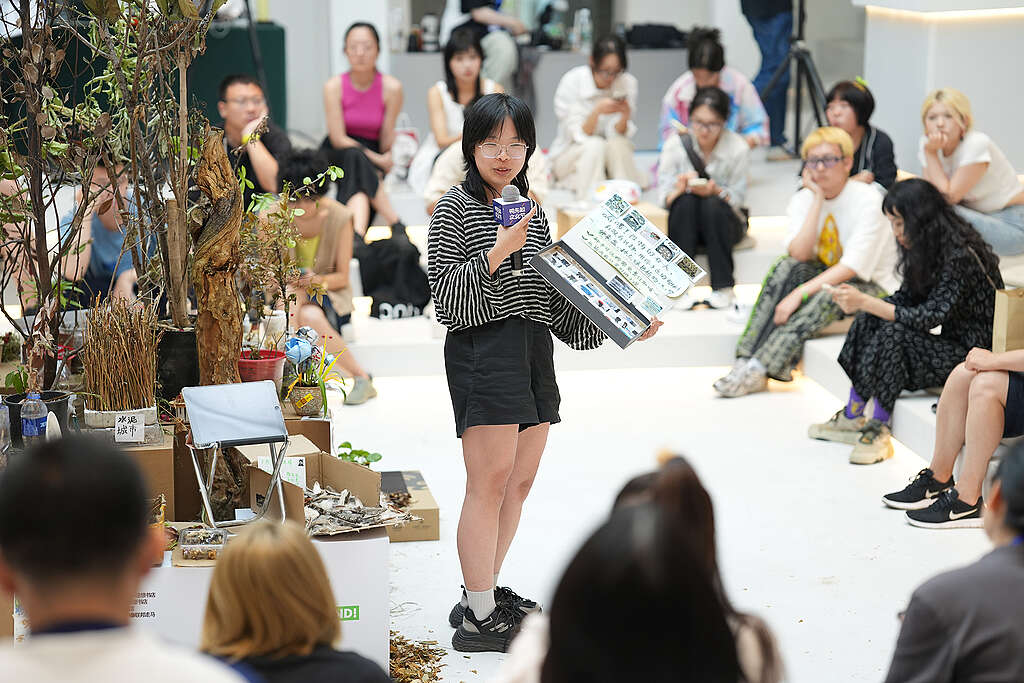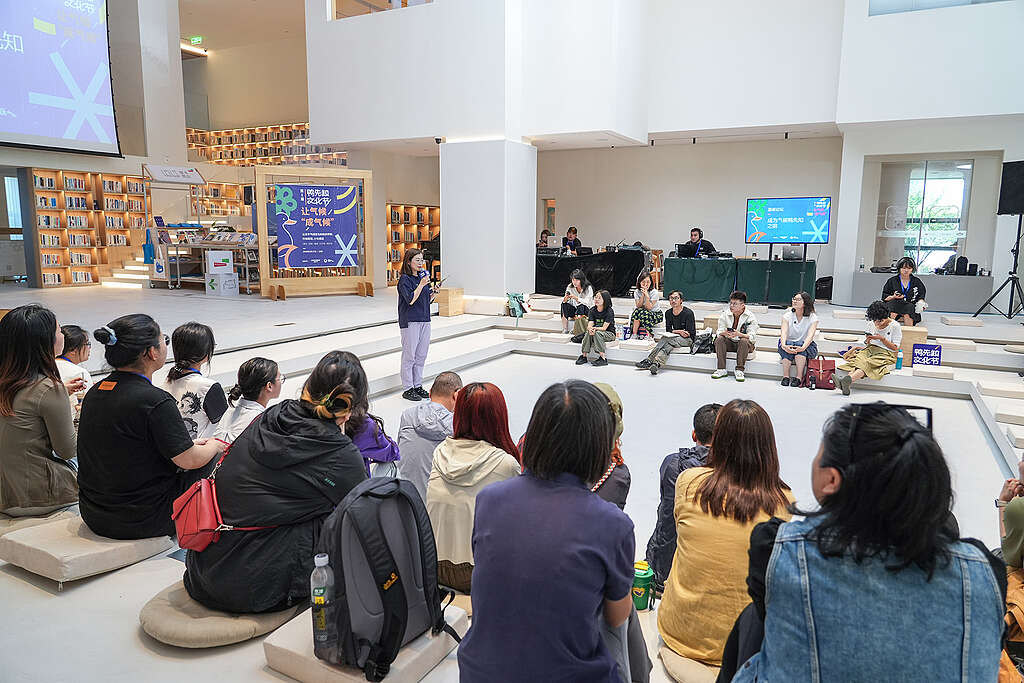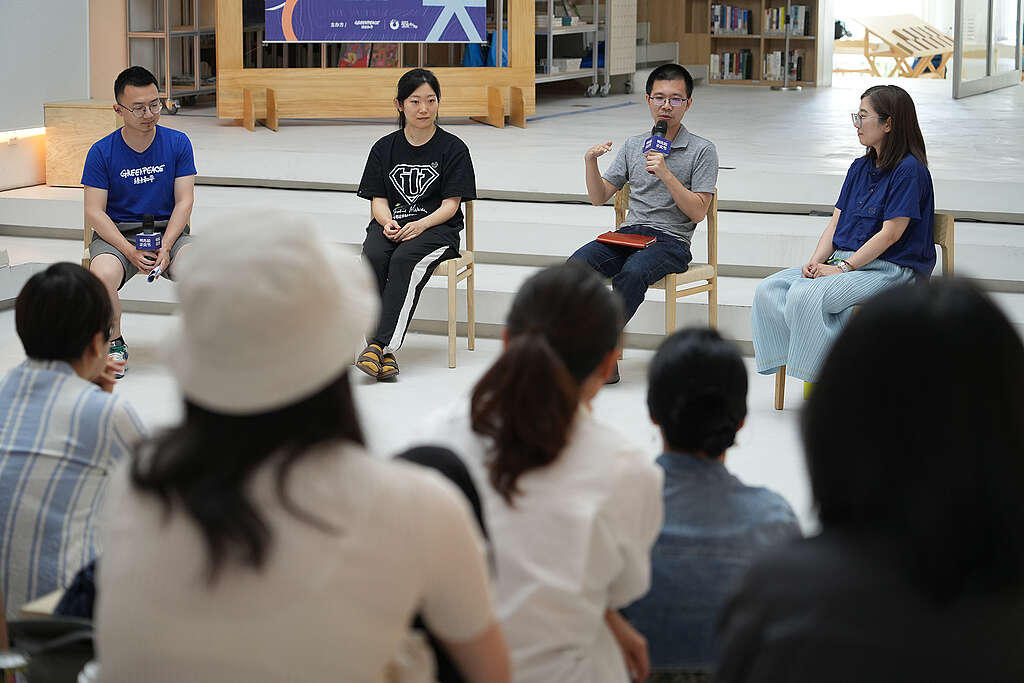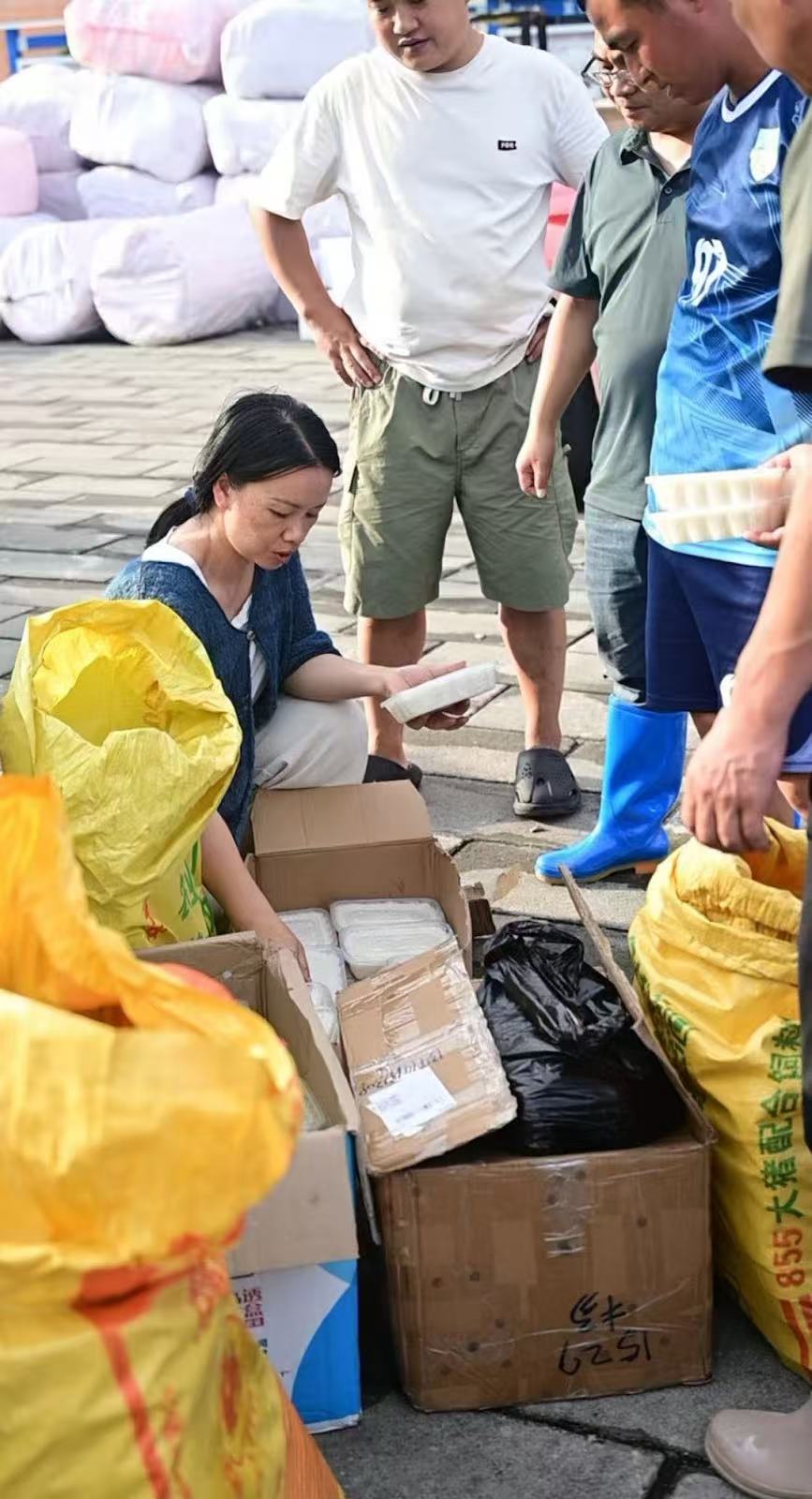
This weekend, the first “Duck Knows First” Cultural Festival opened in Hangzhou, China, co-hosted by Greenpeace East Asia and the Hangzhou Ecological Culture Association. The three-day festival invited climate activists from a variety of fields to share different cases of climate action to live and online audiences to discuss how climate change connects to the public in China and explore possibilities for climate action in the future.
“Duck knows first” comes from an ancient poem, as explained by Liu Junyan, the head of Greenpeace’s Beijing-based climate program, at the beginning of the event:“When the river water warms up in the springtime, the ducks are the first to know.”
For Greenpeace, this duck is central to the way we talk about climate change, and who is impacted first, and which members of our society are the need for action on climate, including those who have dedicated themselves to work hard to address the problem at hand. In that spirit, we invited the speakers to this event.
Greenpeace’s Chief China Representative Yuan Ying opened the event with a speech explaining the history and position of Greenpeace’s work on global environmental issues like climate change and biodiversity, with a focus on promoting positive change in government, business, and in the public arena. She shared that the Duck Knows First event aims to inspire public participation in cross-border discussions on climate change and encourage people to take action.
Sun Yaoqin, the President of Hangzhou Ecological Culture Association, then introduced her organization and its origins, telling the story of Xin Hao, one of the founders. After cycling past pollution sites for years as a student, Xin set up an organization to record and report pollution.
Liang Jie, a well-known economist, spoke about climate change’s impact on socio-economic life, giving a cost-benefit analysis of climate action. “Ultimately, our concern isn’t about the climate, but about people – our future selves, and the future of others.”
Li Wei, the secretary general of Hangzhou Ecological Culture Association, spoke on “Small Changes, Big Climate”, telling individual stories of environmental protection to emphasize that everyone has their own field of expertise when it comes to taking action on an issue as big as climate change.
“Pathways to tomorrow” founder Jing spoke about food, the way her mother and her reacquainted themselves with the food on their plate, healthy eating, and the resilience of food systems in an era of climate change, starting the “Pathways to Tomorrow Plate Program.”
Fang Jiahe, a painter and researcher of traditional Chinese myths talked about the mythological beasts of the epic “Classic of Mountains and Seas” to talk about climate change and its impact on the human world. Elephants that once inhabited the central plains of China, for example, were forced away due to changes in their environment.
Photographer Liang Yingfei spoke about the role photography plays in documented the ways people mitigate and adapt to the impact of climate change, particularly during extreme weather events, and when focusing on vulnerable communities.
Vincent manages Dice Con, the biggest board game exhibition in Asia, and spoke about designing “Spaceship Earth”, a climate change board game that he hopes helps people understand not only the science of climate change but the participation of everyday people in responding.
Lawyer Lu Shengyao, from Sunshine Law Firm, presented a case study of environmental litigation surrounding the relationship between the energy transition and citizens’ private interests.
Architect Li Hu, who founded OPEN Architects, talked about the climate-friendly design, and the integration of climate action into every aspect of life and work, from urban development to ecological protection to emissions reduction.

At the end of the first day, Wang Jue, a public and cultural program specialist at Greenpeace, shared some of Greenpeace’s Beijing office’s research on climate change, which began in 2007. From glaciers to cities to cultural heritage sites, climate change’s impacts are increasingly severe. Amid risk and crisis, supporting a diversity of climate action is on of Greenpeace’s key goals, both supporting experts, media, and partner organizations to build connections between different fields and also to create broader awareness through research and co-creation workshops.




